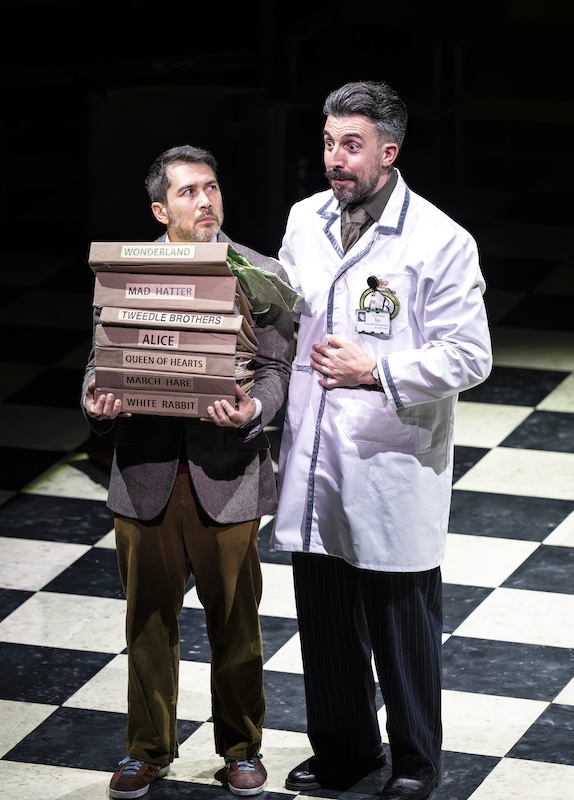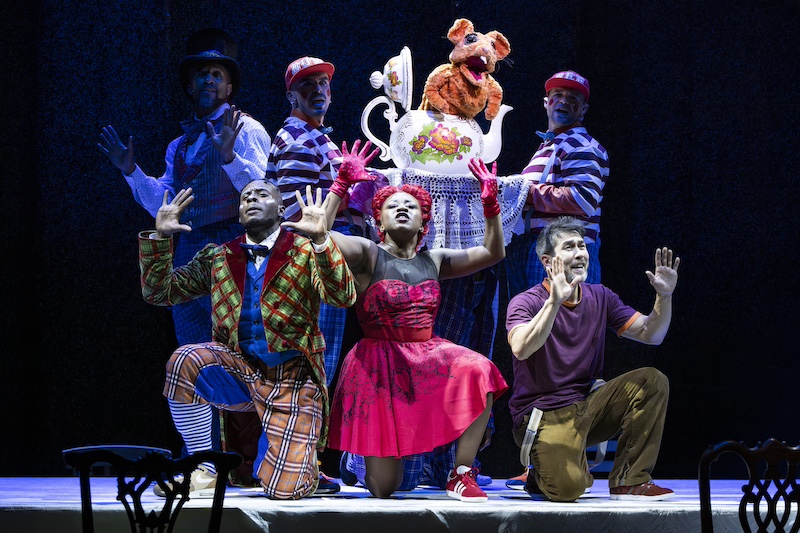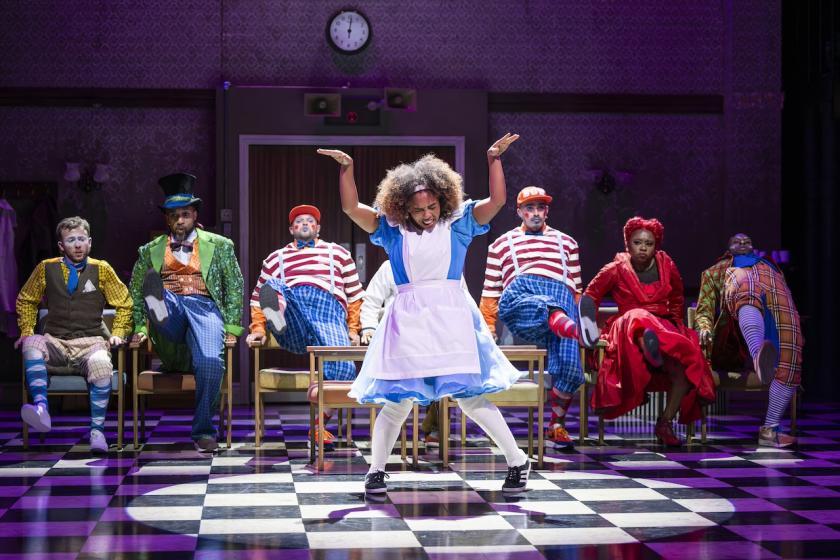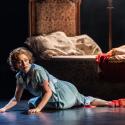The Mad Hatter gets it about right when he tells Alice: “You’re entirely bonkers… but all the best people are.” Kate Prince takes this line and runs with it in her riotous but surprisingly sweet and often moving hip hop take on Lewis Carroll’s 1865 book, a production now enjoying a 10th anniversary revival, coinciding with a revival of Christopher Wheeldon’s three-act Alice ballet in the Covent Garden main house.
The premise of Prince’s show, at first, seems bleak: the familiar characters (the Mad Hatter, March Hare, White Rabbit et al) are inmates of an asylum, ruled by a blinkered and cruel doctor whose rigid belief in “normalisation” rules out any possibility of understanding his patients’ ills. The drama opens with the arrival of a new doctor, earnest Ernst (Tommy Franzen, from whom we know to expect fireworks in due course).
 Poor weedy Ernst (pictured right with Ross Ward's Dr Fontwell) is landed with the case notes of the entire motley crew on Ward W, and given a week in which to get results. What follows is a long but rarely less than engrossing presentation of each character in turn, hinting at the backstories that led them to this place. Alice (Natasha Gooden) has body-size issues, the White Rabbit (Jaih Betote) severe OCD, while the Mad Hatter (Isaac “Turbo” Baptiste) has mercury poisoning after a lifetime’s contact with wool felt (a common problem for milliners in the 19th century). Tweedledum is convinced that his identical twin, who died at birth, is still living, and is only happy when allowed to squabble with his imaginary brother. Though the tale doesn’t pull its punches on mental distress it’s never mawkish, thanks partly to the droll spoken text, which riffs on Carroll's riddling style while rarely quoting him. But it's mainly down to the dancing, which is dynamite, whether in freestyle solos or synchronised set pieces that incorporate locking and b-boying and waacking and no doubt many other styles I'm unable to name. Knowledgeable audience members whoop their appreciation every time there's a change of beat. It's noisy, yes.
Poor weedy Ernst (pictured right with Ross Ward's Dr Fontwell) is landed with the case notes of the entire motley crew on Ward W, and given a week in which to get results. What follows is a long but rarely less than engrossing presentation of each character in turn, hinting at the backstories that led them to this place. Alice (Natasha Gooden) has body-size issues, the White Rabbit (Jaih Betote) severe OCD, while the Mad Hatter (Isaac “Turbo” Baptiste) has mercury poisoning after a lifetime’s contact with wool felt (a common problem for milliners in the 19th century). Tweedledum is convinced that his identical twin, who died at birth, is still living, and is only happy when allowed to squabble with his imaginary brother. Though the tale doesn’t pull its punches on mental distress it’s never mawkish, thanks partly to the droll spoken text, which riffs on Carroll's riddling style while rarely quoting him. But it's mainly down to the dancing, which is dynamite, whether in freestyle solos or synchronised set pieces that incorporate locking and b-boying and waacking and no doubt many other styles I'm unable to name. Knowledgeable audience members whoop their appreciation every time there's a change of beat. It's noisy, yes. The shorter second half is one glorious party, as the inmates break out of the asylum to reassemble in the safe space they call Wonderland, furnished with table and chairs and a lot of colourful teapots. The table becomes a platform for more astonishing freestyling, and this is when Tommy Franzen's woebegone doctor finally finds his mojo, shedding first his white coat then his regular-guy clothing as he gradually gets the Wonderland vibe – which of course is the message of the show: one of empathy and respect towards people with mental difficulties.
The shorter second half is one glorious party, as the inmates break out of the asylum to reassemble in the safe space they call Wonderland, furnished with table and chairs and a lot of colourful teapots. The table becomes a platform for more astonishing freestyling, and this is when Tommy Franzen's woebegone doctor finally finds his mojo, shedding first his white coat then his regular-guy clothing as he gradually gets the Wonderland vibe – which of course is the message of the show: one of empathy and respect towards people with mental difficulties.
The live music, performed in full view from a high platform, brings a sheen of sophistication to everything – even the karaoke turn from a glove-puppet dormouse (pictured above). Malinda Parris, the show's warm and personable narrator, neatly swaps in and out of a superb female harmony trio, while the soundtrack's composers DJ Walde and Josh Cohen provide beats, DJ skills and more vocals.
This isn't just a family show, though families will love it. It's a great night out for anyone.














Add comment